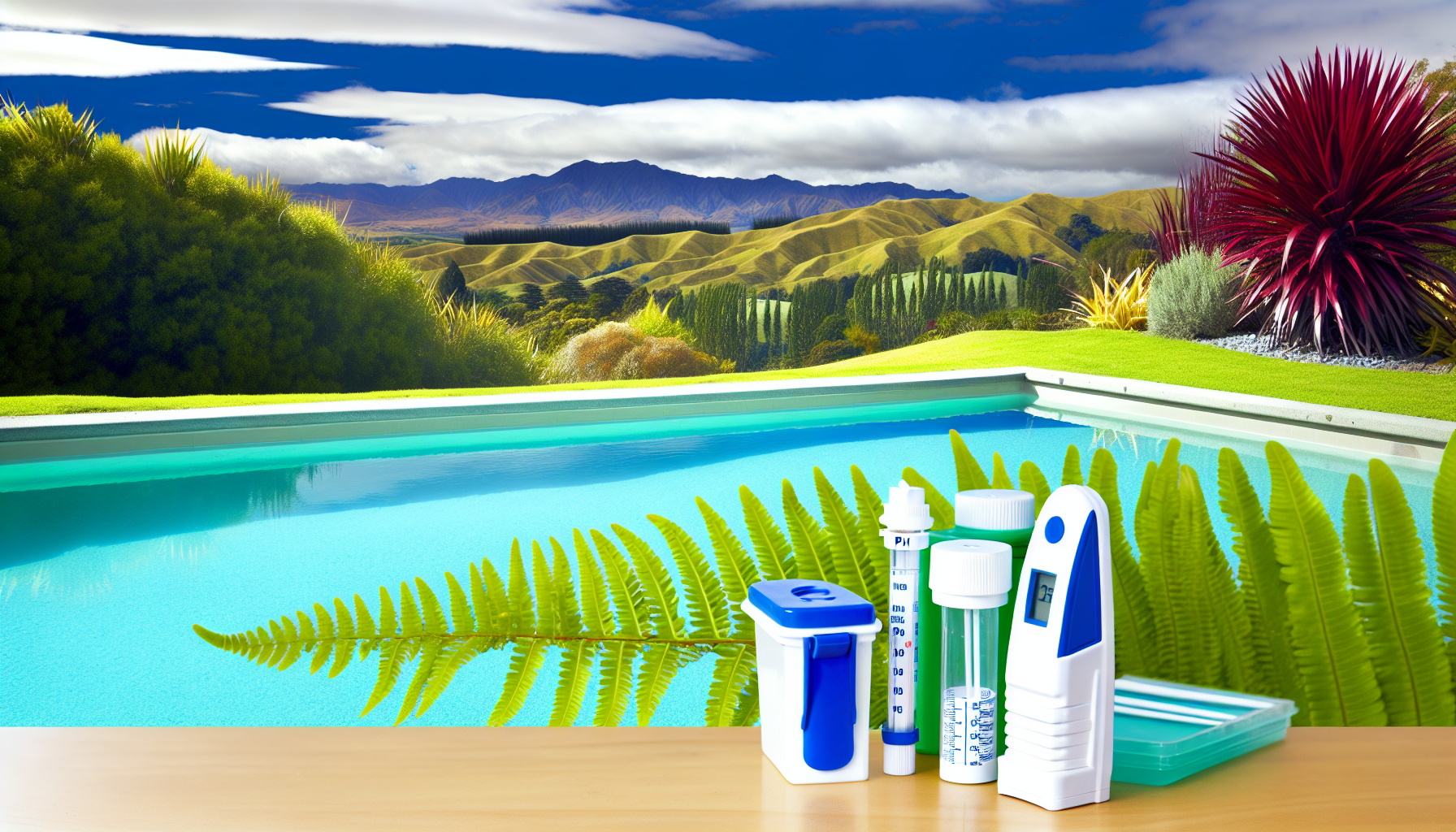If you’re new to pool ownership like I was not too long ago, sorting out water chemistry can seem a bit overwhelming. All those terms—pH, chlorine levels, alkalinity… It’s enough to make your head spin. But here’s the thing: once you’ve got the right pool test kit, everything gets a lot easier.
Let’s cut to the chase—testing your pool water isn’t something you can just guess. You need the right gear to keep your pool water safe and crystal clear without overdoing the chemicals. Think of it like baking a good pavlova—if you don’t measure properly, it’s just not going to turn out right.
So, what sort of kit should you go for as a beginner? Here’s what matters…
Start With a Simple Test Kit
As a beginner, you don’t need anything too fancy or overly technical. You want a test kit that checks for the basics:
- Chlorine levels
- pH balance
- Total Alkalinity
These are the big three to keep your pool clean and stop the water from going green or cloudy. If you can keep these numbers right, you’re off to a solid start.
One easy-to-use option I’ve found is the AquaChek 7-Way Test Strips. You just dip a strip in your pool water, wait 15 seconds, and compare the colours to the guide on the bottle. Simple. You can find them at Bunnings NZ or order online from places like poolsupplies.co.nz. No faffing around with test tubes or chemicals.
Why Test Strips Are Great for Beginners
So, using test strips is kind of like using a store-bought cake mix instead of baking from scratch—super easy, less messy, and you still get good results.
They’re also cheap, quick, and don’t take up heaps of space in the pool shed. Plus, most strips now test for multiple things all at once, so it’s one dip and done.
If You Want to Level Up…
When you’re feeling more confident—and maybe you want more accuracy—look at the Taylor Technologies K-2006 kit. It’s a little pricier and more involved, but it gives very detailed info. It’s like swapping from instant coffee to a proper barista machine… a bit more effort but top results. Some Kiwi pool owners swear by it.
I’ve seen this kit online on international sites like Amazon, but for local options, try Bellblock Pools or Swimart NZ. Some of these local retailers also do water testing for you in their store, which can be handy to double-check your own testing skills.
What About Digital Testers?
Honestly? For beginners, I wouldn’t bother. Digital testers look cool but they can be fiddly and expensive. Unless you’re keen on having a science kit for the backyard, stick with the strips or a basic drop test kit first. Once you’re in a rhythm, then maybe try the techy stuff.
How Often Do You Need to Test?
This is what you should do—test your water at least once a week. Maybe more in the heat of summer or after a crazy pool party when you know there’s been a lot of action in there.
If the test says something’s off, don’t panic. There are guides all over the place—including Water Safety New Zealand and local pool gear suppliers like NZ Pool Supplies—with info on how to adjust your levels.
Quick Tip: Get a Waterproof Log Book
It’s kind of like keeping a food diary when you’re on a health kick. Keeping track of your test results helps you spot patterns and avoid overcorrecting with chemicals. Bunnings and Mitre 10 have simple notebooks in their garden sections that work just fine.
By the way, if you ever feel unsure, just pop into your local pool shop. I’ve found the teams at places like Poolwerx and Swimart really helpful and they’re used to beginners asking the same questions.
Final Word
If you’re just starting out with pool chemistry in New Zealand, keep it simple. Grab a basic test strip kit or a drop test kit from a local place like Bunnings, Mitre 10, or an online site like poolsupplies.co.nz. Don’t overcomplicate it. Test once a week, track your results, and don’t be shy about asking the pros for help if something seems off.
Right tools, a little practice, and you’ll be the pool guru in no time.


Leave a Reply